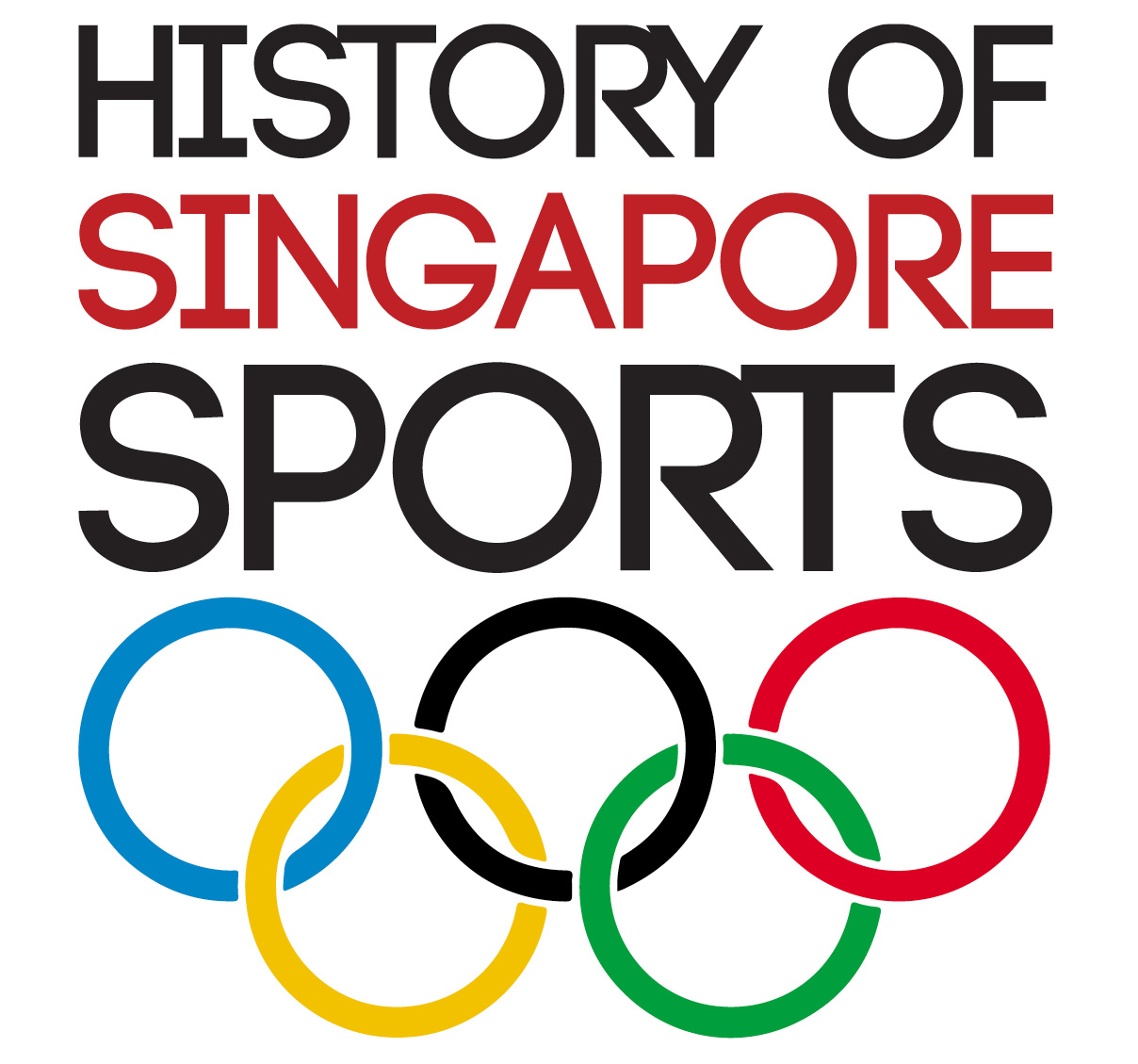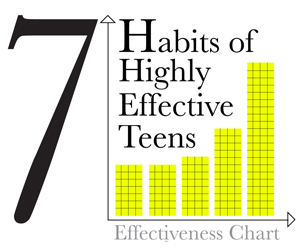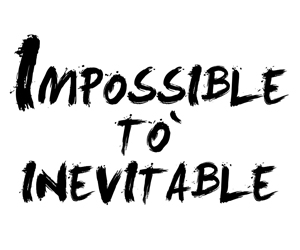
Do you know that Singapore has five decades of sporting history? Here are the highlights from 1965 to 2016
1965
Eight days before Singapore gained independence, two goals from Quah Kim Song and one from Majid Ariff in the final 17 minutes saw the Lions come back and beat Selangor 3-1 to retain the Malaya Cup (now the Malaysia Cup). An early birthday present, though it would be another 12 years before they triumphed again.
1966
Singapore recorded their best-ever Asian Games football result to date when they finished fourth out of 11 teams in Bangkok. The Lions squad saw off hosts Thailand before going down to Japan in the semi-final as they proved that they could mix it with Asia’s best.
1968
At the Olympics in Mexico City, track and field legend C. Kunalan set a record that would stand for 33 years when he sprinted 100 metres in 10.38 seconds.
1969
Singapore’s oldest track and field record to date was set by Arumugan Kannan when he won the bronze in the 50km racewalk at the SEAP Games. The mark of 5:07.03 has lasted almost 46 years now. At the same competition, C. Kunalan won gold in the 100m, 200m and 4x400m relay.
1970
Singapore won their first-ever track and field relay medal at an Asian Games when the 4×100-metre female quartet of Schushila Wadhumal, Gan Bee Wah, Maimoon Abu Bakar and Glory Barnabas took silver in Tehran. They beat China to second place behind Japan. Only one more women’s relay Asiad medal, also a silver, has been won since then – in the 4x400m four years later.
1971
Syed Abdul Kadir won Singapore’s first-ever SEA Games boxing gold by stunning defending champions Vanla Dawla. The Burmese representative had come into that year’s SEAP Games – as it was then known – as Asia’s best boxer, but was upset in Kuala Lumpur by Kadir. The following year, Kadir became the first and only Singapore boxer to make it to an Olympics.
1972
P.C. Suppiah memorably ran his 10,000 metres heat at the Munich Olympics bare-footed in the belief that he could go faster without footwear, having been unable to afford shoes in his earlier days. Remarkably, he broke his own national record and became the first Singaporean man to go under 32 minutes in the event. A year later, he set a new mark that would last for 41 years.
1974
Chee Swee Lee, one of Singapore athletics’ pioneering lights, became the first Singaporean woman to win a gold medal in the track and field events at an Asian Games. In Tehran, the 19-year-old smashed the Asiad record for the 400 metres by running 55.08 seconds to etch her name into Singapore sporting history.
1975
The last of Singapore’s four SEA Games gold medals in women’s hurdles was won by Heather Merican, who effortlessly cleared barriers over 200 metres in her trademark elegance to triumph in Bangkok. The wait for a fifth continues.
1976
Singapore sent its first-ever judo representative to the Olympics when Koh Eng Kian flew the flag in Montreal. The 20-year-old, who was also the flag-bearer at the opening ceremony, finished 18th out of 32 judokas.
1977
The first-ever Lion City Cup was held in Singapore, featuring two local teams and six Malaysia state teams. A youth football tournament, it was conceptualised by then-Football Association of Singapore chairman Nadesan Ganesan and inspired FIFA to create a similar international tournament, now known as the U17 World Cup. Fandi Ahmad led the Singapore ‘A’ side to victory in the Cup, which will enter its 26th edition this year.
1978
At just 14 years of age, Junie Sng made huge waves in the swimming pool when she stormed her way to Singapore’s first-ever women’s gold at an Asian Games by winning the 400-metre freestyle. The feat, accomplished in a time that was more than four seconds faster than the old meet record, also made her the youngest female gold medalist in the entire Games’ history. One day later, Sng won the 800m freestyle, also in Asiad record time.
1979
K. Jayamani did the double of 1,500 and 3,000 metres at the Jakarta SEA Games when she won both events to take home the only athletics golds for Singapore that year. No Singapore woman would win a running gold until Shanti Veronica Pereira’s 200m triumph 36 years later.
1980
Singapore won the second-last of their 24 Malaysia Cups when they saw off favourites Selangor at the Merdeka Stadium, running out 2-1 victors. The match heralded the coming of age of a certain 18-year-old named Fandi Ahmad, who scored the winner in the 54th minute with the game at 1-1.
1981
Singapore won their first SEA Games medal in volleyball when the women’s team clinched bronze in the SEA Games in Manila, placing behind winners Philippines and runners-up Indonesia. The women would not win another medal for 34 years.
1982
Ang Peng Siong was the first swimmer to truly put Singapore on the world map when, at the age of 20, the speedster clocked 22.69 seconds to win gold in the 50-metre freestyle at the US National Championships in Indianapolis. The time, only 0.15s off the world record then, made him the world number one in 1982. It was also a national record that stood for a remarkable 33 years.
1983
Another Singaporean made world headlines, this time in football when Fandi Ahmad scored against the mighty Inter Milan. The first Singapore footballer to play in Europe when he signed for Dutch side FC Groningen, the 21-year-old striker struck a cool finish past future Italy number one Walter Zenga in a UEFA Cup tie as they won 2-0. Fandi, who was coveted by powerhouses Ajax, went on to become a true Singapore legend. Singapore hosted the SEA Games for the second time, the Republic won 38 gold, 38 silver and 58 bronze medals to finish fourth on the overall medal tally.
1984
Swim king Ang Peng Siong missed out on becoming the first Singapore swimmer to make an Olympics final when he missed out in the 100metre freestyle in Seoul by just one place. The 1982 Asian Games champion in the same discipline had to settle for winning the ‘B’ final. Twenty-four years later, Tao Li finally achieved the feat in the 50m butterfly in Beijing, where she finished fifth.
1985
Adelene Wee became Singapore’s first bowling world champion at the age of 19 when she took first place at the Ladies’ Masters title at the World Games in London. Wee beat out competitors from 23 other nations, all while she was battling with a hamstring injury during the tournament.
1986
The men’s waterpolo team won bronze at the Asian Games in Seoul, one of Singapore’s four bronzes at the tournament. They have failed to finish on the podium since.
1987
Jasmie Hussein won Singapore’s first-ever SEA Games gold in waterskiing in Jakarta, triumphing in the men’s slalom category. He also wins the same category in the Asian Open Waterski Championships the same year, which was held on home soil at the Kallang River.
1988
Mah Li Lian won the first of four consecutive Asian titles when she beat Dawn Olsen of Hong Kong at the 4th Asian Squash Championships in Kuwait. The women’s team won the first of their three team titles as well.
1989
Singapore’s first and to date, only gold medal in golf at the SEA Games was won by Samson Gimson in Kuala Lumpur. The 25-year-old, who turned professional soon after, had wanted the victory to end off his amateur career.
1990
Singapore saw its first world champion in silat when Sheik Alau’ddin bin Yacoob Marican emerged tops in the Pencak Silat World Invitational Championships in Den Haag, Netherlands. Known as the “Silat King”, Sheik would go on to win another world gold in 1994.
1991
Squash was introduced for the first time at the SEA Games and Singapore swept all four gold medals on offer as the glory days for the sport continued, taking home the singles and team crowns for both men and women.
1992
Singapore sent its first-ever Olympics representatives in badminton and fencing to the Games in Barcelona. Female shuttler Zarinah Abdullah headed for Spain along with male counterparts Hamid Khan and Donald Koh, while Wong Liang Hun and Tan Kim Huat took part in both the men’s foil and epee.
1993
Singapore hosted the SEA Games for the third time and recorded their best-ever medal tally of 164, which also included a record 50 golds. Joscelin Yeo bagged nine of those at the 17th edition of the Games and 22 years would pass before the country staged the biennial event again – the same amount of time those tallies stood as records as well.
1994
In what would be their final year in Malaysian competition, Singapore lifted the Malaysia Cup again after 14 years to complete the league and Cup double under Douglas Moore. Dubbed the “Dream Team”, the likes of Jang Jung, Malek Awab, Steven Tan, Lee Man Hon played starring roles – none more so than Abbas Saad, who struck a hat-trick in the final against Pahang before Fandi Ahmad finished them off in a thumping 4-0 win in front of 81,000 fans at the Shah Alam Stadium.
1995
Murugiah Rameshon broke the national record for the men’s marathon for a fifth and final time when he clocked 2:24.22 in the 1995 SEA Games in Chiangmai, Thailand. The mark still stands today. Yvonne Danson won silver in the women’s marathon in 2:34.41, a national record that is still unbroken as well.
1996
Singapore’s first professional football league was lauched, following the decision of the Football Association of Singapore to withdraw from Malaysian competition one year earlier. Eight clubs started off the inaugural season, which was won by a Geylang United side boasting Fandi Ahmad and a pair of future Iranian World Cuppers, Mohammad Khakpour and Hamid Reza Estili.
1997
Shooter Lee Wung Yew had a SEA Games to remember when he bagged four gold medals in Jarkarta, winning two individual ones and two team events. Waterskiier Roger Koa and swim queen Joscelin Yeo followed with three individual triumphs each. The former was also responsible for waterskiing’s best-ever SEA Games overall gold haul, which would be matched 18 years later.
1998
The first of four AFF Championships triumphs for Singapore was won in Vietnam, when the competition as known as the Tiger Cup. Thailand were defending champions heading into this second edition of the tournament, but were eliminated by the hosts in the semi-finals. The Lions then stunned Vietnam in the final as R. Sasikumar’s famous “Shoulder of God” goal gave them a 1-0 victory and the Lions’ first-ever international title.
1999
S. Sinnathurai won Singapore’s only taekwondo gold at the SEA Games in Brunei, emerging as champion in the men’s flyweight. It would be 16 years later before Singapore struck gold again in the sport.
2000
Female paddler Jing Junhong caught the attention of the entire nation as she came desperately close to ending Singapore’s Olympic medal drought when she finished fourth in the singles of the table tennis event in Sydney. Her surprise achievement helped to pave the way for the sport’s eventual success eight years later. Jing is also giving back to the sport – she is the current head coach for the women’s team.
2001
A 33-year-old athletics record was broken when U.K. Shyam lowered the national 100 metre sprint mark for men’s by 0.01 seconds to finally eclipse track legend C. Kunalan. Shyam surpassed the record twice that year, first in the World University Games in Beijing, and then en-route to a silver medal at the SEA Games. His time of 10.37s still remains a record today.
2002
Singapore obtained its first-ever gold medal in badminton at the Commonwealth Games through female shuttler Li Li, who only became a citizen earlier that year. The 19-year-old stunned home favourite Tracey Hallam in four sets in the final of the women’s singles to make history in Manchester.
2003
Li Li spearheaded the Singapore women’s team charge to their first-ever SEA Games gold as they saw off Thailand in the final. Together with Xiao Luxi, Liu Fan, Jiang Yanmei and Tan Li Si, the female shuttlers triumphed in Vietnam for the country’s only team gold at the Games and only their third overall in the sport to date.
2004
In Athens at the 2004 Olympic Games, paddler Li Jiawei narrowly missed a medal after losing out to South Korea’s Kim Kyung-Ah in the women’s singles event for the bronze. In Singapore, the Singapore Sports School opened its doors and became the only education institution in the country that allows youths to enrol in an integrated academic and sports programme. The school aims to ensure student-athletes get the best of both worlds in a world-class environment. Notable alumni include Calvin Kang, Dipna Lim-Prasad, Tao Li, Kimberly Lim and Jazreel Tan.
2005
Singapore swimming’s golden girl Joscelin Yeo won her 40th SEA Games gold medal after she claimed the 50-metre freestyle in Manila, Philippines. The haul eclipsed countrywoman Patricia Chan’s 39 and remains a record to date in the competition’s history. Joscelin went to four Olympics in her 17-year competitive career – a length that is unmatched by any other local swimmer.
2006
Singapore sailors beat China in the Sailing medal table at the 2006 Asian Games in Doha, winning 5 gold, 3 silver and 2 bronze medals, making it Singapore’s best performance at the Asian Games ever. Griselda Khng, only sailor who missed out on a medal, went on to become the first Singaporean and second-ever Asian to win the Optimist Girls’ World Championship title in Uruguay a month later.
2007
Project 0812 was launched – a national initiative headed by Ng Ser Miang and the SNOC – with a single objective to bring Olympic glory to Singapore. Various stakeholders, government and non-government, helped prepare athletes from five sports – badminton, sailing, table tennis, swimming and shooting – in a quest to be successful at the 2008 and 2012 Olympic Games.
2008
Singapore finally won an Olympic medal again after Tan Howe Liang’s weightlifting silver in 1960, as the women’s table tennis team of Li Jiawei, Feng Tianwei and Wang Yuegu made history in Beijing. Prime Minister Lee Hsieng Loong even postponed the broadcast of his English speech for the National Day Rally so Singaporeans could watch the team put up a credible fight against China in the final of the team event. Later that year, swimmer Yip Pin Xiu won Singapore’s first-ever Paralympics gold medal.
2009
Sasha Christian, who started swimming at one and skiing at three, tricked her way to becoming Asia’s best when she won the Asian Wakeboard Championships in Chuncheon, South Korea and brought home Singapore’s first gold medal at the tournament.
2010
Having beaten Moscow in the final vote, Singapore was handed the responsibility of staging the inaugural Youth Olympic Games. An estimated 3,600 athletes from 205 countries were hosted with 26 sports on offer. At the end of 15 days of competition, Singapore finished with two silver and five bronze medals, and was praised for pulling off the Games successfully.
2011
Discus legend James Wong won his ninth and final SEA Games gold in the event, having bagged his first one in 1993 to kickstart an era of remarkable dominance. Wong, who ended his career with 10 Games golds having picked up one more in the hammer, still holds the national records for both events.
2012
Singapore recorded its most successful Olympic Games outing winning two bronze medals in table tennis. Feng Tianwei claimed bronze in the women’s singles event and together with her team mates, Wang Yuegu and Li Jiawei, they won a bronze medal in the women’s team event against South Korea.
2013
Mok Ying Ren brought home Singapore’s first-ever marathon gold in the SEA Games when he overtook the front three with six kilometres to go in Naypyidaw, Myanmar. It ended a 30-year drought in running events for Singapore at the Games. Rower Saiyidah Aisyah also bagged a historic first individual gold for the country.
2014
Joseph Schooling clinched Singapore’s first-ever Commonwealth Games swimming medal by taking silver in the 100-metre butterfly. He then ended the nation’s 24-year medal drought in men’s swimming at the Asian Games later that year with bronze in the 200m butterfly – before topping that by striking gold in the 100m butterfly to bring home men’s first gold in 32 years. In Nanjing, sailors Bernie Chin and Samantha Yom won Singapore’s first Youth Olympics golds too.
2015
The SEA Games returned to Singapore for its 28th edition after a 22-year absence and the competition whipped up the sporting fervor in the nation. Our athletes received incredible support at every sport and venue, spurring Team Singapore to bag a record 84-gold haul amid their best-ever medal tally of 259. The likes of Shanti Pereira and Joseph Schooling shot to prominence as Singapore’s sports scene received a massive boost.
2016
Joseph Schooling on Saturday (Aug 13) won Singapore’s first-ever Olympic gold medal after winning the 100m butterfly event at Rio 2016.
The 21-year-old Singaporean touched the wall in 50.39s, nearly one second ahead of an extraordinary joint-silver finish of 51.14s shared by American great Michael Phelps, South Africa’s Chad le Clos and Hungarian Laszlo Cseh.
Singapore para-swimmer Yip Pin Xiu broke the world record to win gold in the 100m backstroke S2 event on Saturday (Sept 10) morning (Singapore time). This is Singapore’s first medal at the Rio Paralympics, which began on Thursday. Yip won out of a field of six swimmers. The 24-year-old clocked 2min 7.09sec at the Olympic Aquatics Stadium in Rio, faster than China’s Feng Yazhu (2min 18.65sec) and Ukraine’s Iryna Sotska (2min 21.98sec), who won silver and bronze respectively. She also broke the world record in the 50m backstroke with her split timing of 59.38s in the same race.
National para-swimmer Theresa Goh has won her first-ever Paralympics medal on Monday morning (Sept 12, Singapore time), taking bronze in the women’s 100m breaststroke SB final.At the Olympic Aquatic Stadium in Rio De Janeiro, the 29-year-old touched home in 1min 55.55s to finish third in the eight-strong field in the final of her pet event.
Taken from http://www.straitstimes.com/sport/gold-for-yip-pin-xiu-at-rio-paralympics, http://www.singaporeolympics.com/singapores-sporting-moments-from-1965-to-2015/, http://www.todayonline.com/sports/goh-takes-bronze-pet-event-win-her-first-paralympics-medal; https://en.wikipedia.org/wiki/Quah_Zheng_Wen


















